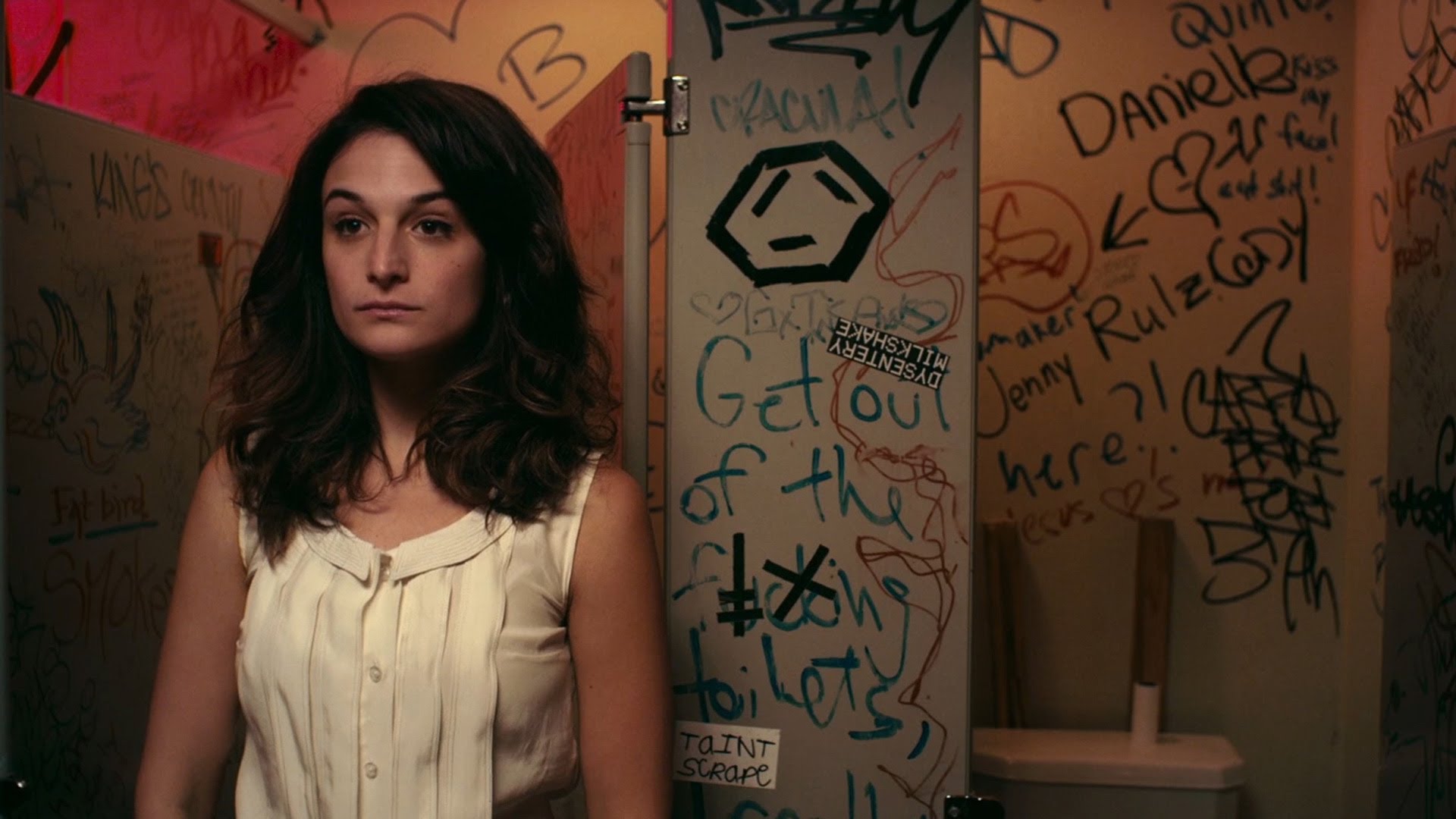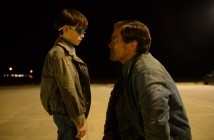[dropcap]W[/dropcap]hile not fitting into the traditional summer flick milieu of heroes and awe-inspiring explosions, “Obvious Child” packs its own surprising punch. It’s a romantic comedy that strays away from the traditional equation. When most romantic comedies deal with a beaten-down protagonist who eventually gains unequivocal improvement (and love in the process), “Obvious Child” leaves the harsh realities of love and youth, ever-present throughout the film, for the audience to witness.
“Obvious Child” tells the story of Donna Stern, played by “Kroll Show” and “Parks & Rec” regular, Jenny Slate. She is a twenty-something-year old woman living in Williamsburg, Brooklyn who works at a bookstore by day and performs stand-up comedy in the evenings. Donna seems genuinely happy with where she is in her life, comfortable enough to make jokes about her boyfriend and her love life in front of a dark room of hip New Yorkers. These humble beginnings seem quaint, ambitious and carefree — at least for the first ten minutes of the film.
Director Gilliam Robespierre leaves no time for the audience to get acclimated with the characters and places, as Robespierre sets the breakup between Donna and her boyfriend at the very beginning of the film. Not allowing the audience to get attached to the characters, they’re forced to share Donna’s emotional instability that comes from being blindsided by a breakup in a drab bar bathroom in the middle of winter.
Overlooking the serious and bleak nature of things to find the silver lining becomes something of an art form for Slate and director Robespierre that sets the tone of the film, especially in the post-breakup standup set where Donna half-jokingly lets her audience know how she would kill both her ex-boyfriend and his current love interest in an act she playfully references as “murder-suey.” The occasional tasteless fart jokes also keeps the film easygoing in light of Donna’s heartbreaking experiences
But because the film hits so hard with the feels early, everything else seems like a walk in the park — even the news of Donna being pregnant after hooking up with a random bar patron named Max, played by Jake Lacy. Donna is intent on going through with an abortion, even if it means having the procedure on February 14. Rather than politicizing talk of the abortion, the film stays within the moment and emphasizes the instability and uncertainty that dwells in the mind of someone in their mid-twenties.
The journey delivers both touching moments and feelings of isolation when Donna is interacting with her divorced parents, which provides the binary between intimate coping and unfortunate detachment. Donna’s hesitancy at meeting Max again, who she thinks is genuinely caring despite their unfortunate position, overshadows any concern about the abortion itself. But the film’s ability to move passed the traumatic experience is what sets this romantic comedy apart from all the rest. Essentially, the film is sweet narrative driven by an imminent abortion, if there was ever a film that can make that bold and seemingly absurd claim.
[author title=”About the Author”]
[custom_headline type=”center” level=”h2″ looks_like=”h3″ accent=”true”]Recent Posts[/custom_headline]
[recent_posts count=”1″ orientation=”horizontal”] [recent_posts count=”3″ orientation=”horizontal” offset=”1″]



